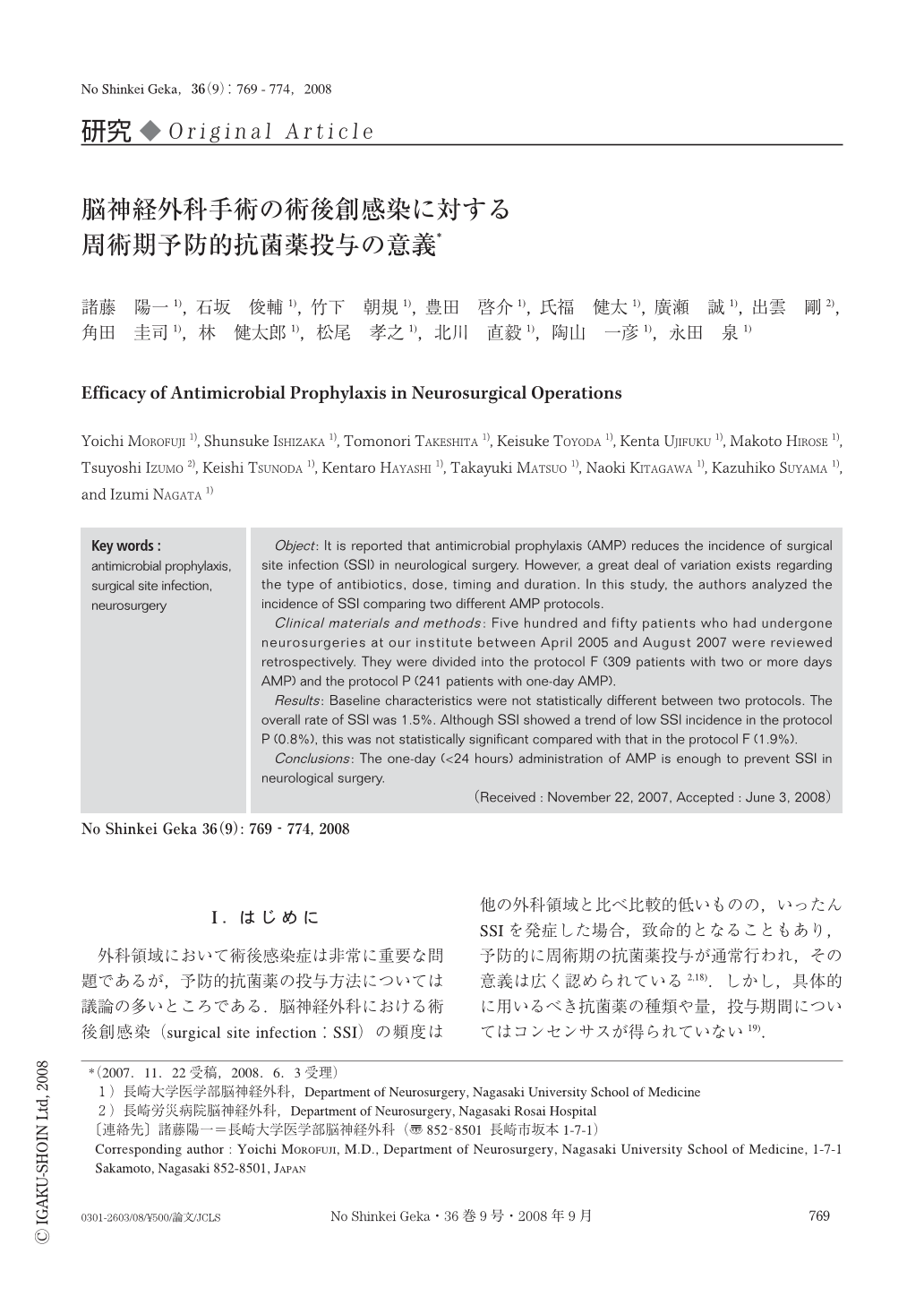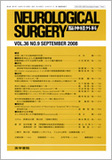Japanese
English
- 有料閲覧
- Abstract 文献概要
- 1ページ目 Look Inside
- 参考文献 Reference
Ⅰ.はじめに
外科領域において術後感染症は非常に重要な問題であるが,予防的抗菌薬の投与方法については議論の多いところである.脳神経外科における術後創感染(surgical site infection:SSI)の頻度は他の外科領域と比べ比較的低いものの,いったんSSIを発症した場合,致命的となることもあり,予防的に周術期の抗菌薬投与が通常行われ,その意義は広く認められている2,18).しかし,具体的に用いるべき抗菌薬の種類や量,投与期間についてはコンセンサスが得られていない19).
1999年に改訂報告されたアメリカのCenters for Disease Control and Prevention(CDC)のガイドラインでは,clean surgery,clean-contaminated surgeryに対しては抗菌薬の術前・術中投与は推奨されているものの術後投与は不要とされており,またイギリスのガイドラインでも同様に術後投与は不要とされている2,18).しかし,本邦においては予防的抗菌薬投与を術後も漫然と行っている施設が多く,脳神経外科領域の成書における記載および論文報告でも術後数日~1週間程度の抗菌薬投与が推奨されている12,15,19).
術後抗菌薬の長期使用は耐性菌の出現の面および医療経済的にも問題である可能性があると考え,われわれは,2006年8月よりCDCのガイドラインに準じ,術後24時間以内に抗菌薬投与を終了するプロトコールに統一し,その有効性を検討した.
Object: It is reported that antimicrobial prophylaxis (AMP) reduces the incidence of surgical site infection (SSI) in neurological surgery. However, a great deal of variation exists regarding the type of antibiotics, dose, timing and duration. In this study, the authors analyzed the incidence of SSI comparing two different AMP protocols.
Clinical materials and methods: Five hundred and fifty patients who had undergone neurosurgeries at our institute between April 2005 and August 2007 were reviewed retrospectively. They were divided into the protocol F (309 patients with two or more days AMP) and the protocol P (241 patients with one-day AMP).
Results: Baseline characteristics were not statistically different between two protocols. The overall rate of SSI was 1.5%. Although SSI showed a trend of low SSI incidence in the protocol P (0.8%), this was not statistically significant compared with that in the protocol F (1.9%).
Conclusions: The one-day (<24 hours) administration of AMP is enough to prevent SSI in neurological surgery.

Copyright © 2008, Igaku-Shoin Ltd. All rights reserved.


